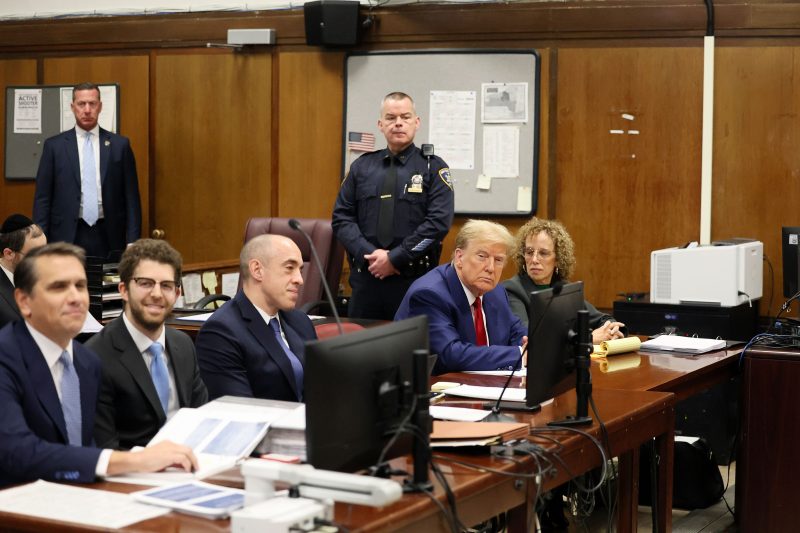
Trump’s Path to Power: Can He Serve as President Despite a Criminal Conviction?
In a surprising turn of events, the possibility of Donald Trump emerging as the Republican Party’s nominee in the upcoming elections has cast a shadow over the political landscape. Despite facing legal challenges and controversies, Trump seems unfazed and determined to pursue the nomination, leading many to speculate on the implications of such a scenario.
Trump’s resilience in the face of legal troubles stems from a combination of factors that have solidified his support base within the GOP. His unapologetic and confrontational style, coupled with a strong anti-establishment message, continues to resonate with a significant portion of the party’s voters. This unwavering loyalty from his supporters has provided Trump with a level of political invincibility that seems to transcend conventional norms.
The prospect of Trump serving as the GOP nominee even if convicted of a crime raises serious questions about the integrity of the political process and the moral character of those involved. While the U.S. Constitution does not explicitly prohibit a convicted felon from running for or holding public office, the ethical implications of such a scenario cannot be ignored.
Should Trump secure the GOP nomination and subsequently be convicted of a crime, the ramifications would undoubtedly be far-reaching. Not only would it cast a dark shadow over the Republican Party, but it could also have long-lasting effects on the credibility of the electoral system as a whole. The notion of a candidate serving in a position of power while facing legal consequences would undoubtedly test the limits of public tolerance and expose the vulnerabilities of the political system.
Furthermore, the normalization of such behavior could set a dangerous precedent for future political leaders, signaling that accountability and integrity are no longer prerequisites for holding office. This erosion of ethical standards could have profound implications for the stability and legitimacy of the democratic process, potentially undermining the public’s trust in the government and its ability to uphold the rule of law.
In conclusion, the possibility of Donald Trump becoming the GOP nominee despite potential legal troubles is a concerning development that highlights the complex interplay between politics, ethics, and the rule of law. As the political landscape continues to evolve, it is essential for citizens to remain vigilant and hold their elected officials accountable for their actions, ensuring that the fundamental principles of democracy are preserved and upheld.
